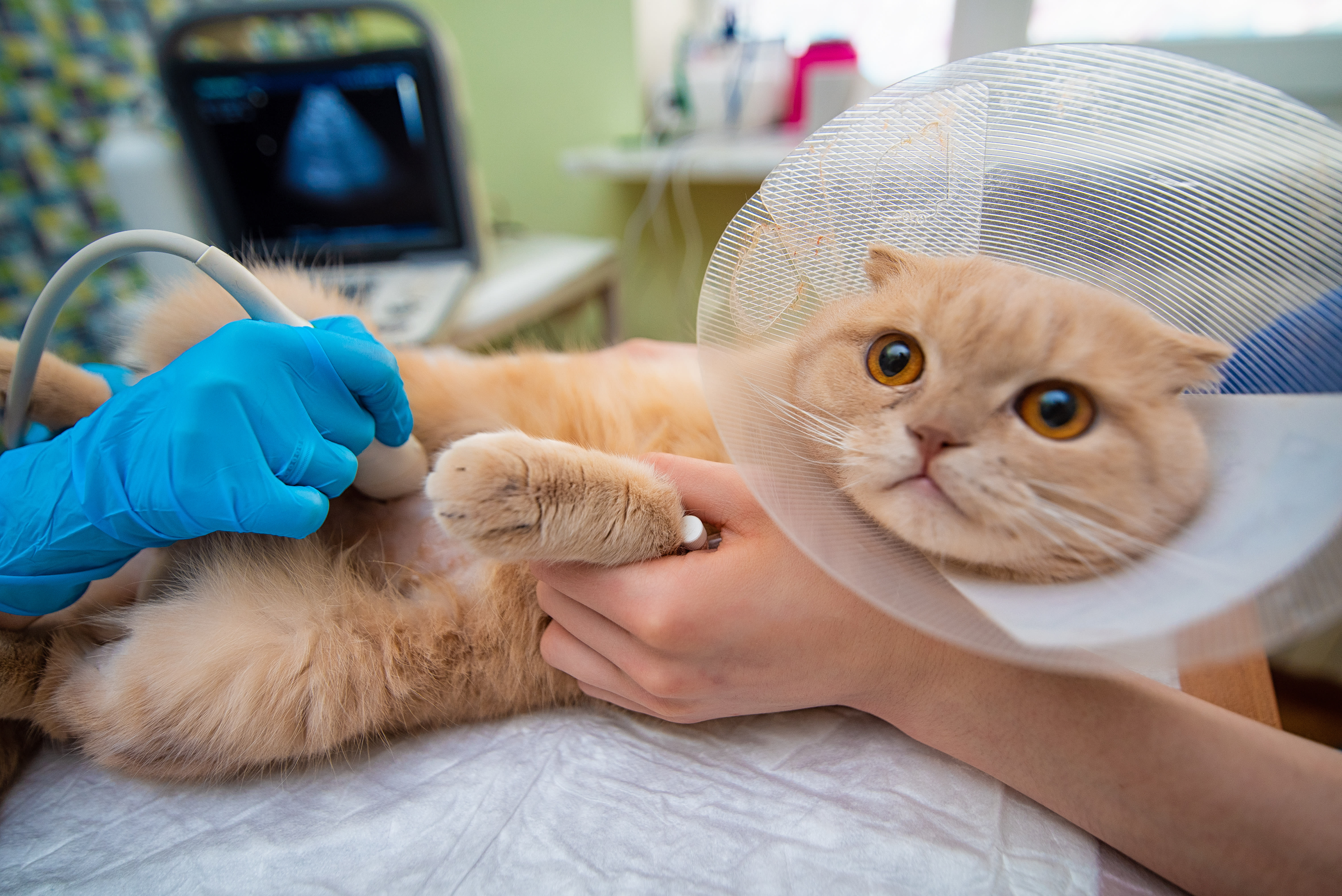So you've just discovered that your cat or dog requires an ultrasound procedure. What exactly does that even mean? And how can it help your pet? Here, our South Wilton vets describe how we perform ultrasound procedures on pets, how to prepare your pet for the procedure and what kinds of conditions can be detected with this testing.
Our pets can develop all sorts of illnesses and conditions like tumors or cysts and get into things they shouldn't that may get lodged inside them. Ultrasounds are a kind of diagnostic imaging technology that transmits sound waves into your pet's body to produce a picture in real-time of an area of their body.
Veterinary ultrasounds are non-invasive and can be used to diagnose or evaluate problems with your pet's internal organs or check on your pet's pregnancy.
Reasons Your Pet May Need An Ultrasound
An ultrasound can help our South Wilton vets examine the structure of your pet’s organs so we can discover and identify blockages, tumors, or other problems.
At South Wilton Veterinary Group, ultrasounds are done in our in-house veterinary diagnostic laboratory. Our team of veterinary specialists uses ultrasounds and other diagnostic tools to provide an accurate diagnosis of your pet’s medical issues, so we can provide your pet with the most effective treatment possible.
Conditions That May Require An Ultrasound
Heart Conditions
If your dog or cat has been diagnosed with a heart condition, your vet may refer you to a specialist for a heart ultrasound or echocardiogram to help evaluate the condition and function of your pet's heart and to search for any abnormalities.
Abnormal Blood or Urine Test Results
If your veterinarian discovers any anomalies or abnormalities in your pet's urine tests or blood samples, they may recommend that your companion get an ultrasound to gain a better picture of their internal organs like their lymph nodes, kidneys, bladder, and more to try and identify what is causing the issue.
Examination of Soft Tissues
Almost all kinds of soft tissue can be examined in detail thanks to ultrasound imaging technology. Some of the most common areas examined using ultrasound include:
- Eyes
- Tendons
- Ligaments
- Fetal viability and development
- Thyroid glands
If abnormal tissue is spotted during an ultrasound, the vet may also use the ultrasound to help collect tissue samples from the affected area.
How To Prepare Your Pet for an Ultrasound
Ultrasounds performed on different areas of your pet's body require different kinds of preparation. Ask your vets for the specific things you need to do to help prepare your pet for its ultrasound.
You may need to stop your pet from eating and drinking for 8 to 12 hours before the procedure, in particular before abdominal ultrasounds. Your vet will be able to best examine your pet's bladder when it is full so for ultrasounds of that organ, you should ideally not have your cat or dog urinate for 3 to 6 hours before the procedure.
The area to be examined will likely be shaved so clear images can be produced. While most pets will remain still and cooperative during the ultrasound, some will need to be sedated.
If, after an ultrasound, biopsies need to be conducted, your pet will require a heavy sedative to anesthetic to help them relax and prevent complications. Your vet will be sure to let you know if the is necessary.
Getting Your Pet's Ultrasound Results
Since your vets can perform an ultrasound in real-time, they will get the results immediately. In some instances, images taken through ultrasound will have to be sent to a veterinary radiologist after they have been taken for examination. In cases like that, you may need to wait a few days before the final result is decided.
Note: The advice provided in this post is intended for informational purposes and does not constitute medical advice regarding pets. For an accurate diagnosis of your pet's condition, please make an appointment with your vet.
Does your dog or cat require an ultrasound? Are you curious about South Wilton Veterinary Group'S diagnostic imaging procedures? Contact us today for more information.
 Looking for a vet in South Wilton?
Looking for a vet in South Wilton?
We're always accepting new patients, so contact our veterinary hospital today to book your pet's first appointment.
Related Articles View All
C-Section for Dogs: Everything You Should Know
Our South Wilton vets share some information about c-sections in dogs, when they might be needed, and what you can expect.
Enucleation: Eye Removal in Cats & Dogs
Learning that your cat or dog needs eye removal surgery can be upsetting, and you'll probably have many questions. Our veterinarians in South Wilton explain pet eye removal, recovery times, potential complications, and more.
Why does my pet need a urinalysis?
Your vet can perform a urinalysis to determine whether your cat or dog may have a health condition or disease that needs treatment. Here, our South Wilton veterinarians explain why regular urinalysis testing for pets is a critical part of their care.
Understanding Blood Tests for Dogs
Dogs and cats often require diagnostic blood tests to reveal vital health information about underlying health conditions. In this post, our veterinarians at South Wilton explain the significance of these tests for pets.

